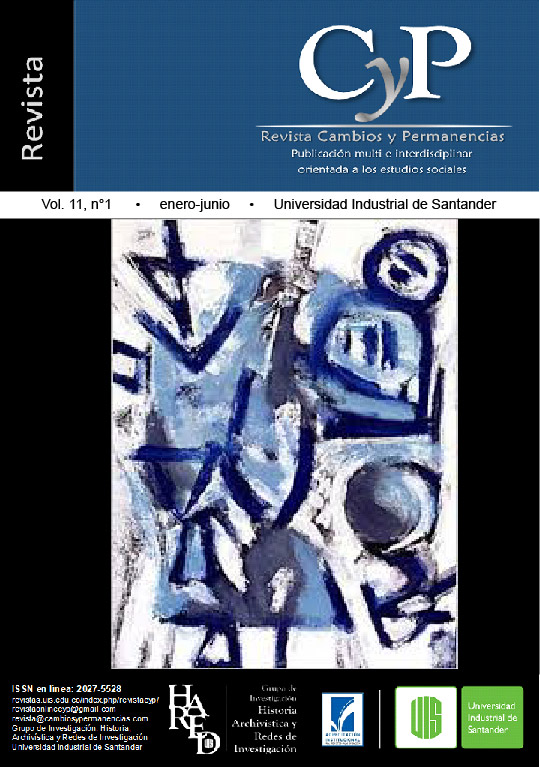The activism of the image: the political turn in the memories of the “Grupo de Fotógrafos da Bahia”, Brazil
Published 2020-06-30
Keywords
- photography,
- social movement,
- Brazilian redemocratization,
- authorial rights,
- authorial photography
How to Cite
Abstract
This text is a result of an investigation about the collective work of the <<Grupo de Fotógrafos da Bahia>> (Bahia Photographers Group), that acted since 1978 to 1984. We analyzed the documents produced by the group and the press about their activities. After interpretation of members' oral narratives, we crossed them to answer questions about political changes that occurred in 1981. In that year, actions that started as a local movement of fight for authorial rights joined the broadest political context of the defense of freedom speech and democratic overture that has been occurred all over the country in the latest years of military dictatorship. The group had women and men, professional or not of the photographic practice, at that point, came from the countryside or from the capital of the State, Salvador. These photographers used to see their authorial works with images as the possibility of investigative knowledge about the local cultures, like the Afrobrazilian religions, and as a political positioning that was simultaneous to that of others Brazilian social movements.
Downloads
References
Agamben, G. (2017). O uso dos corpos. São Paulo, Brasil: Boitempo.
Alves, A. (12 de agosto de 2015). Entrevista realizada por E. de A. Rabelo. Salvador.
Artaxo, V. (1981). Muito vatapá, no Encontro Nacional dos Fotógrafos. Boletim da, SBPC.
Foster, H. (2014). O artista como etnógrafo. In: H. Foster, O retorno do real. São Paulo, Brasil: Cosac Naify.
Fotobahia 79 (1979). Correio da Bahia. Salvador: 2.º Caderno, Cultura, Fotógrafos Mostram Sua Arte. Jornal da Bahia.
Gondim, A. (12 de maio de 2016). Entrevista realizada por E. de A. Rabelo. Salvador.
Grupo de Fotógrafos da Bahia (1978). Programa do Seminário “Perspectiva cultural e profissional do fotógrafo na Bahia”. Salvador: Datilografado, Acervo Pessoal de Aristides Alves.
Grupo de Fotógrafos da Bahia (1981). Jornal FotoBahia. (1).
Krauss, R. (2010). Os espaços discursivos da fotografia. In O fotográfico. Barcelona, Espana: Gustavo Gili.
Marzo, J. L. (Ed.). (2006). Fotografía y activismo. Textos y prácticas (1979-2000). Barcelona, España: Gustavo Gili.
Mauad, A. M. (2008). O olhar engajado: fotografias contemporâneas e as dimensões políticas da cultura visual. ArtCultura, 10(16), 33-50.
Mauad, A. M., Louzada, S., y Souza Júnior, L. G. (2014). Anos 1980, afirmação de uma fotografia brasileira. In QUADRAT, S. Viz (Org.). Não foi tempo perdido. Os anos 80. Rio de Janeiro, Brasil: 7 Letras, debate.
Monteiro, C. (2016). A reorganização e a institucionalização do campo fotográfico no Brasil nos anos 1970 e 1980: entre fotojornalismo e fotografia documentária. In I. L. F. Schiavinatto., y E. A. Costa. (Orgs). Cultura visual e história. São Paulo, Brasil: Alameda.
Moura, M. (1979). FotoBahia 79 – 76 diferentes pontos de vista. Jornal da Bahia, Caderno A2.
Moura, M. (1983). Tempo e real: a miragem da fotografia. In FOTOBAHIA 1983. Salvador.
Rouillé, A. (2009). A fotografia: entre documento e arte contemporânea. São Paulo, Brasil: Senac.
Sousa, J. P. (2004). Uma história crítica do fotojornalismo ocidental. Chapecó, Brasil: Argos.

